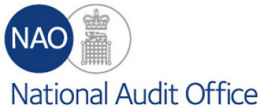Posted 15th October 2008 | No Comments
Overcrowding expected to continue says the National Audit Office

It says that at the time they were let a continuing rise in the number of passengers and the length of passenger journeys were expected to result in lower government subsidies having to be paid.
Overcrowding will continue until more trains are built, warns government watchdog body
THE process for awarding passenger rail franchises in England and Wales has delivered better value for money under Department for Transport management, with subsidies expected to fall.
These are the findings in a report by government spending watchdog the National Audit Office.
But it warned that some fares will rise above inflation and that many commuters will suffer increased overcrowding until investment delivers more trains.
The report also says that, since taking over the franchising process from the Strategic Rail Authority three years ago, the DfT has provided train operating companies with service specifications reflecting Government aims of improving railway performance while controlling industry costs.
The NAO has looked in detail at eight franchises - Southeastern, First Capital Connect, First Great Western, South West Trains, East Midlands, London Midland, CrossCountry and National Express East Coast.
It says that at the time they were let a continuing rise in the number of passengers and the length of passenger journeys were expected to result in lower government subsidies having to be paid.
The turnaround shows a drop from £811 million in 2006/7 to £326 million in 2011/12. These related to payments to train operators to run passenger services and did not include other subsidies paid through Network Rail.
The NAO says the DfT’s contract terms should improve the security, reliability, accessibility and quality of passenger rail services of the eight franchises, but fears that overcrowding and fare increases may offset improvements in passenger satisfaction.
While most regulated fares, such as saver and season tickets, have risen by Retail Price Index plus one per cent, NAO found that increases in non-regulated fares have been substantially higher – often six to seven per cent, while some one-off increases were as high as 20 per cent last year. But special low fare offers have been made as incentives for passengers to travel outside peak hours.
Also, the NAO says that the DfT’s plans to increase capacity – mainly from an extra 1,300 carriages – would increase capacity in the eight franchises by 22 per cent, although increased crowding would occur on routes serving London until planned improvements are carried out.
Tim Burr, head of the NAO, said: “Taxpayers and passengers should benefit from changes made to the franchising process. The DfT has contracted to save the taxpayer money while improving service quality, but will need to ensure that capacity increases are well-managed and timely to provide less crowded and more reliable travel.”
